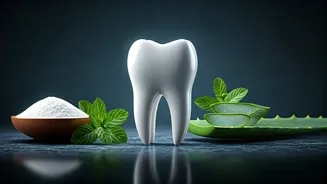Embrace a Healthy Diet
One of the most effective strategies involves adopting a nutritious diet. A diet rich in fruits, vegetables, and whole grains provides essential vitamins,
minerals, and antioxidants, all of which support overall health and potentially reduce cancer risk. Emphasize the consumption of a wide variety of colorful produce to ensure a broad spectrum of nutrients. Limit your intake of processed foods, red meats, and sugary drinks, as these have been linked to an increased risk of several cancers. Include healthy fats, such as those found in avocados, nuts, and olive oil, in moderation to support cellular function. Remember, the goal is to create a balanced eating plan that nourishes your body and helps to strengthen its natural defenses. Making mindful food choices can significantly impact your long-term health and wellness. Consult with a healthcare professional or a registered dietitian to create a personalized meal plan tailored to your specific needs and health goals.
Stay Physically Active
Regular physical activity is crucial for overall health and plays a key role in reducing cancer risk. Aim for at least 150 minutes of moderate-intensity or 75 minutes of vigorous-intensity exercise per week. Engaging in physical activity helps to maintain a healthy weight, boosts the immune system, and reduces inflammation, all of which contribute to cancer prevention. Choose activities that you enjoy, whether it's brisk walking, jogging, swimming, or dancing, to make exercise a sustainable part of your routine. Consider incorporating both aerobic exercises and strength training exercises. Strength training helps to build and maintain muscle mass, which is important for metabolism and overall health. Consistency is key when it comes to exercise; make it a habit and find ways to fit it into your daily life. Even small amounts of activity throughout the day, such as taking the stairs or walking during your lunch break, can make a positive impact. Combining physical activity with a healthy diet maximizes the protective benefits and supports a healthier lifestyle.
Maintain a Healthy Weight
Maintaining a healthy weight is another vital aspect of reducing cancer risk. Obesity and being overweight have been linked to an increased risk of several types of cancer. Strive to maintain a healthy body mass index (BMI) within the recommended range for your age and body type. Weight management is best achieved through a combination of regular physical activity and a balanced diet. Focus on consuming nutrient-dense foods in appropriate portion sizes. Avoid excessive calorie intake from unhealthy sources like processed foods, sugary drinks, and excessive fats. If you are overweight or obese, set realistic weight-loss goals and gradually work towards them. Consult a healthcare professional or a registered dietitian to develop a weight management plan that suits your individual needs. Remember that slow and steady weight loss is often more sustainable than rapid weight loss. Regular monitoring and adjustments to your diet and exercise plan can help you achieve and maintain a healthy weight, thereby reducing your cancer risk and improving your overall health.
Quit Smoking Immediately
Quitting smoking is one of the most impactful steps you can take to reduce cancer risk. Smoking is a major risk factor for lung cancer, as well as many other types of cancer. Tobacco smoke contains numerous carcinogens that damage DNA and can lead to the development of cancerous cells. If you smoke, quitting is one of the single best things you can do for your health. Numerous resources are available to help you quit, including nicotine replacement therapy, medications, and support groups. Reach out to your healthcare provider to discuss the best approach for you. Avoid exposure to secondhand smoke as well, as this can also increase your risk of cancer. By quitting smoking, you not only reduce your personal risk of cancer but also improve your overall health and well-being. The sooner you quit, the greater the health benefits, with the risk of cancer decreasing over time. Embrace this change to protect your health and extend your life.
Limit Alcohol Consumption
Excessive alcohol consumption has been associated with an increased risk of several cancers, including cancers of the mouth, throat, liver, breast, and colon. If you choose to drink alcohol, it's essential to do so in moderation. Moderation is generally defined as up to one drink per day for women and up to two drinks per day for men. Avoid binge drinking, which involves consuming a large amount of alcohol in a short period. The more alcohol you drink, the higher your risk of cancer. Consider avoiding alcohol altogether to reduce your risk. If you have a family history of cancer or other health concerns, consult your doctor about the safe level of alcohol consumption for you. Be mindful of the potential health risks associated with alcohol and make informed decisions that support your overall health and well-being. By limiting your alcohol intake, you take a proactive step in reducing your risk of developing cancer.
Protect From Sun
Protecting your skin from the sun is crucial for preventing skin cancer. Skin cancer is one of the most common types of cancer, and excessive exposure to ultraviolet (UV) radiation from the sun is a primary risk factor. When you're outdoors, use broad-spectrum sunscreen with an SPF of 30 or higher. Apply sunscreen liberally and reapply every two hours, or more frequently if you're swimming or sweating. Seek shade during peak sun hours, typically between 10 a.m. and 4 p.m. Wear protective clothing, such as long sleeves, pants, and a wide-brimmed hat. Use sunglasses to protect your eyes from UV radiation. Avoid tanning beds and sunlamps, as they emit harmful UV rays. Regularly check your skin for any new moles or changes in existing moles. If you notice any suspicious changes, consult a dermatologist promptly. Practicing sun-safe habits is important year-round. Taking these steps can significantly reduce your risk of skin cancer and promote healthier skin.
Get Regular Screenings
Regular cancer screenings play a critical role in early detection, which can significantly improve treatment outcomes. Screening tests can detect cancer at an early stage when it may be more treatable. Talk to your doctor about recommended cancer screenings based on your age, gender, family history, and other risk factors. Common screening tests include mammograms for breast cancer, Pap tests for cervical cancer, colonoscopies for colorectal cancer, and prostate exams for prostate cancer. Follow your doctor's recommendations for screening schedules and attend all scheduled appointments. Be aware of any changes in your body and report any unusual symptoms to your doctor immediately. Early detection through screening can make a life-saving difference. Embrace regular health check-ups and screenings as an essential part of your preventive care routine. By being proactive about your health and adhering to recommended screening guidelines, you can significantly increase your chances of detecting cancer early and receiving timely treatment.
Manage Stress Effectively
Chronic stress can weaken the immune system and potentially increase the risk of cancer. Finding healthy ways to manage stress is crucial for overall health and well-being. Practice stress-reducing techniques such as meditation, yoga, deep breathing exercises, or spending time in nature. Engage in activities that you find enjoyable and relaxing, such as listening to music, reading a book, or pursuing hobbies. Get enough sleep, as sleep deprivation can worsen stress levels. Build a strong social support network of friends and family. Seek professional help from a therapist or counselor if you're struggling to manage stress on your own. Identify stressors in your life and take steps to reduce or eliminate them. Develop coping mechanisms to handle stressful situations effectively. Incorporating stress management techniques into your daily routine is a proactive way to support your health and reduce your cancer risk. Prioritizing your mental health is a fundamental step toward overall wellness.
Consult a Healthcare Pro
Consulting with a healthcare professional is paramount when it comes to understanding and managing your cancer risk. Discuss your family history, lifestyle, and any health concerns with your doctor. They can provide personalized recommendations and guidance based on your individual needs. They can also assess your risk factors and help you create a plan to implement the habits that can potentially lower your risk. Be honest and open with your doctor about your lifestyle, including your diet, exercise habits, smoking and alcohol consumption, and any other relevant information. Ask questions and seek clarification on any information that is unclear. Regular check-ups allow your doctor to monitor your health and detect any potential issues early. Partnering with a healthcare professional ensures you receive the most accurate and personalized advice for your health journey. Schedule regular check-ups, follow their guidance, and prioritize preventive care to take charge of your health.













